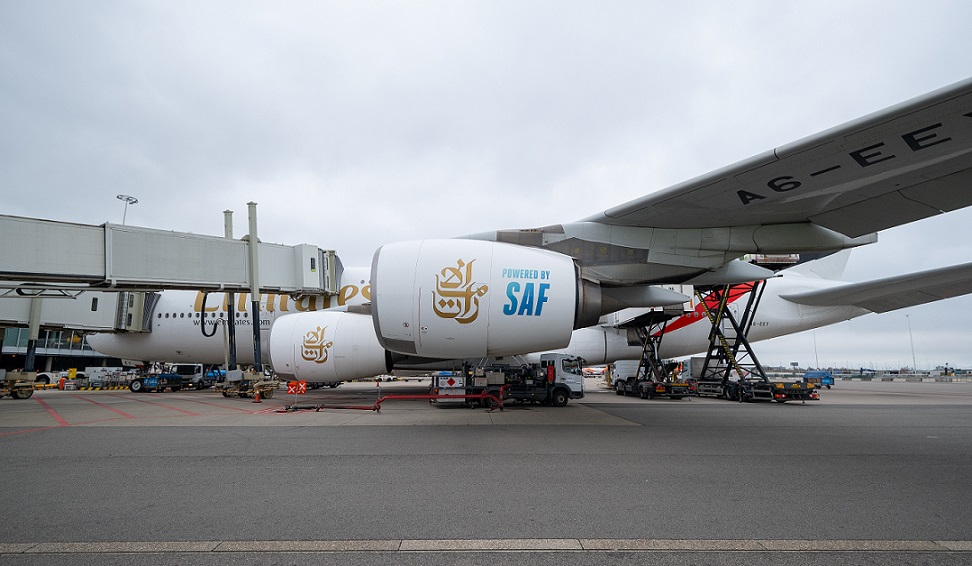Emirates gets ready for SAF at Schiphol
27 / 03 / 2024

Photo: Emirates
Emirates has commenced the activation of its sustainable aviation fuel (SAF) agreement with Neste at Amsterdam Schiphol Airport.
Over 2m gallons of blended SAF will be supplied into the fuelling system at Schiphol Airport over the course of 2024.
The Dubai-headquartered airline will track the delivery of SAF into the fuelling systems and the environmental benefits of this using standard industry accounting methodologies.
Emirates’ partnership with Finnish sustainable fuels producer Neste, announced late last year, represents one of the largest volumes of SAF that the airline has purchased to date.
Once fully supplied into Schiphol’s fuelling system, the blended SAF will have been comprised of over 700,000 gallons of neat SAF. The airline is also working with Neste to supply SAF into the fuelling systems at Singapore Changi Airport in the next few months.
Adel Al Redha, deputy president and chief operations officer at Emirates, said: “Collaborating with committed partners like Neste is one of the practical steps we are taking to reduce our emissions, and it’s an all-important milestone in our own sustainability journey as an airline.
“Strong partnerships like this, especially at major air transport hubs such as Amsterdam, lay the foundation for how we can work with partners and airports to increase access to and availability of SAF across our network.”
Alexander Kueper, vice president renewable aviation at Neste, said: “We are proud to support Emirates in their sustainability journey. SAF is an available solution for reducing greenhouse gas emissions from air travel and it is exciting that Emirates have started using our Neste MY Sustainable Aviation Fuel at Amsterdam Airport Schiphol.
“It is also a great example of how we are working together with partners to accelerate SAF usage and are looking forward to the next steps of our cooperation.”
SAF used as part of this agreement can be safely dropped into existing jet engines and airport fuelling infrastructure, said Emirates.
The airline’s first flight powered by SAF blended with jet fuel took place in 2017 from Chicago. The airline currently operates flights from Paris, Lyon and Oslo with SAF.
In October last year, Emirates, with the support of partners, also integrated SAF into Dubai International Airport fuelling systems, allocating the SAF to a number of flights, including a flight to Sydney.
Earlier this year, the airline became the first international carrier to join the Solent Cluster in the UK, an initiative focused on low carbon investments with the potential to create a SAF plant that can produce up to 200,000 tonnes (200 kt) per year if operational by 2032.
Emirates also actively contributes to a number of industry and UAE government working groups and is in continuous discussion with a range of stakeholders to help scale the production and supply of SAF.
The airline, along with the UAE GCAA has actively played a part in developing the UAE’s power-to-liquid (PtL) fuels roadmap, driven by the UAE Ministry of Energy and Infrastructure and the World Economic Forum, in addition to contributing to the UAE’s National Sustainable Aviation Fuel Roadmap which aims to transform the UAE into a regional hub for alternative aviation fuels with the ambition to produce 700m litres of SAF by 2030.
Joining entities across aviation, government, regulatory, academic, fuel production and the manufacturer value chain, Emirates is a founding participant of the UAE research consortium Air-CRAFT, focused on developing, producing, and scaling SAF technologies for the industry.
The first ever commercial transatlantic flight 100% powered by SAF took place in November 2023.













